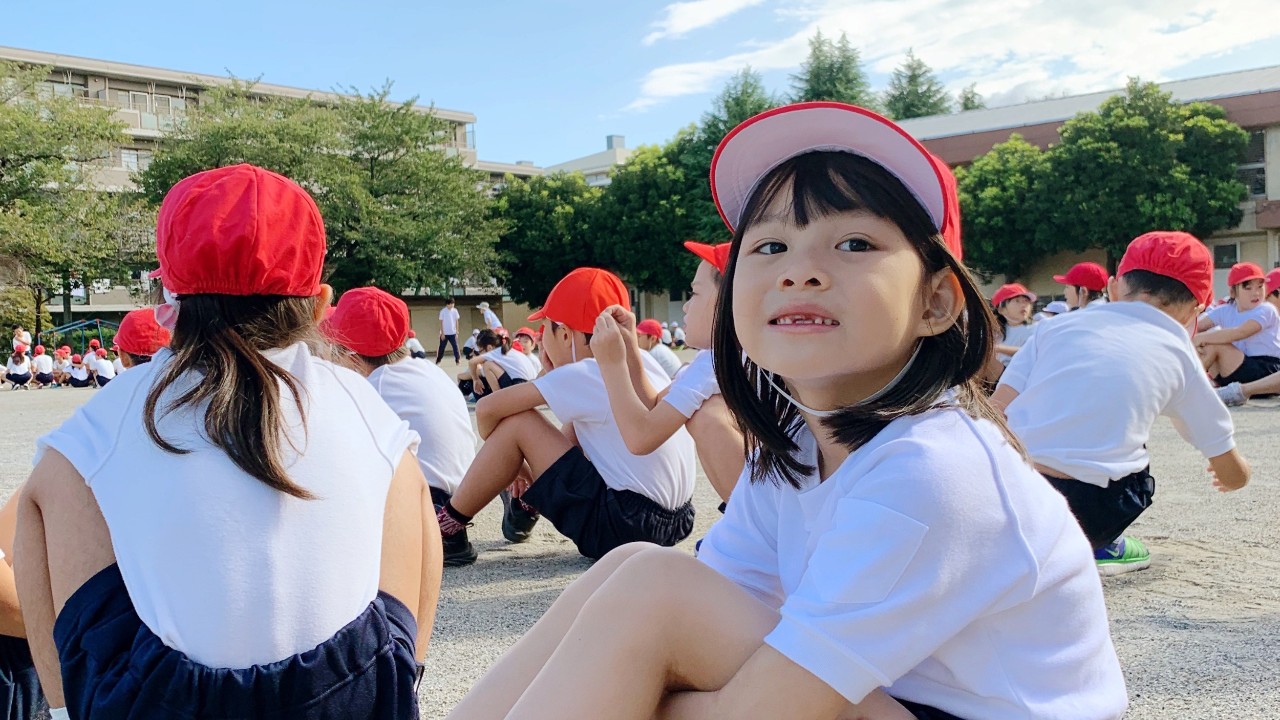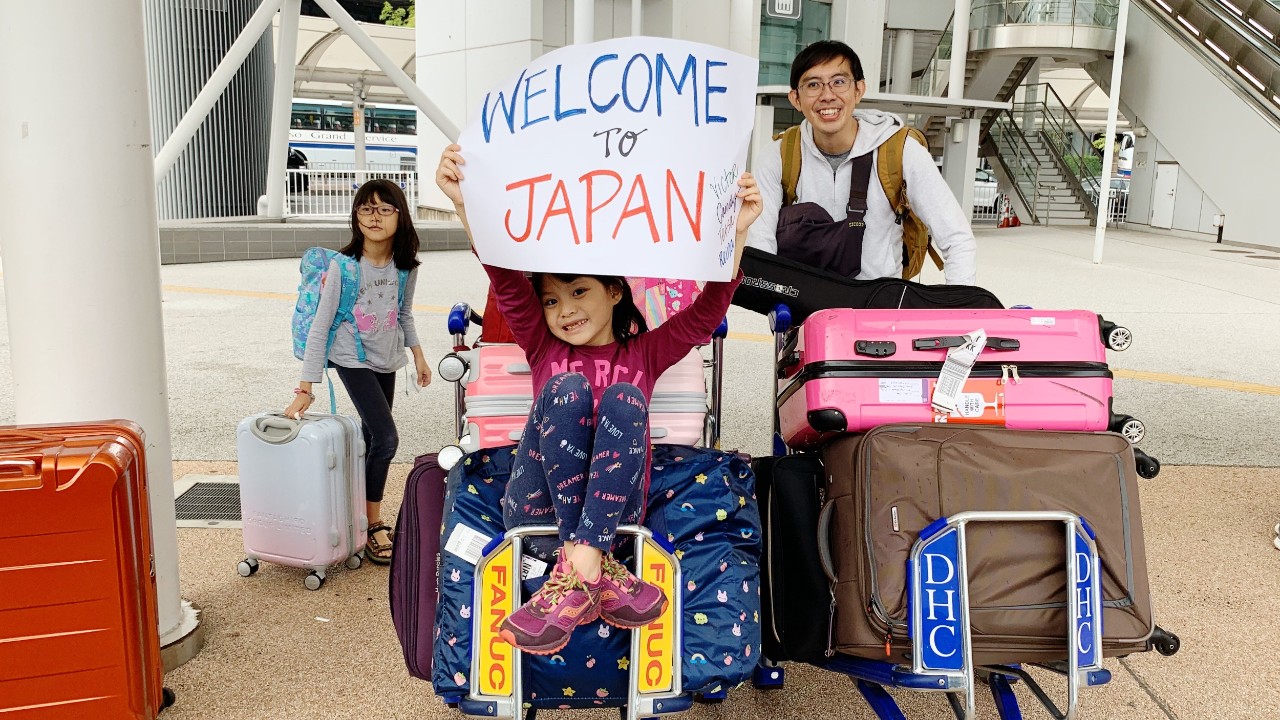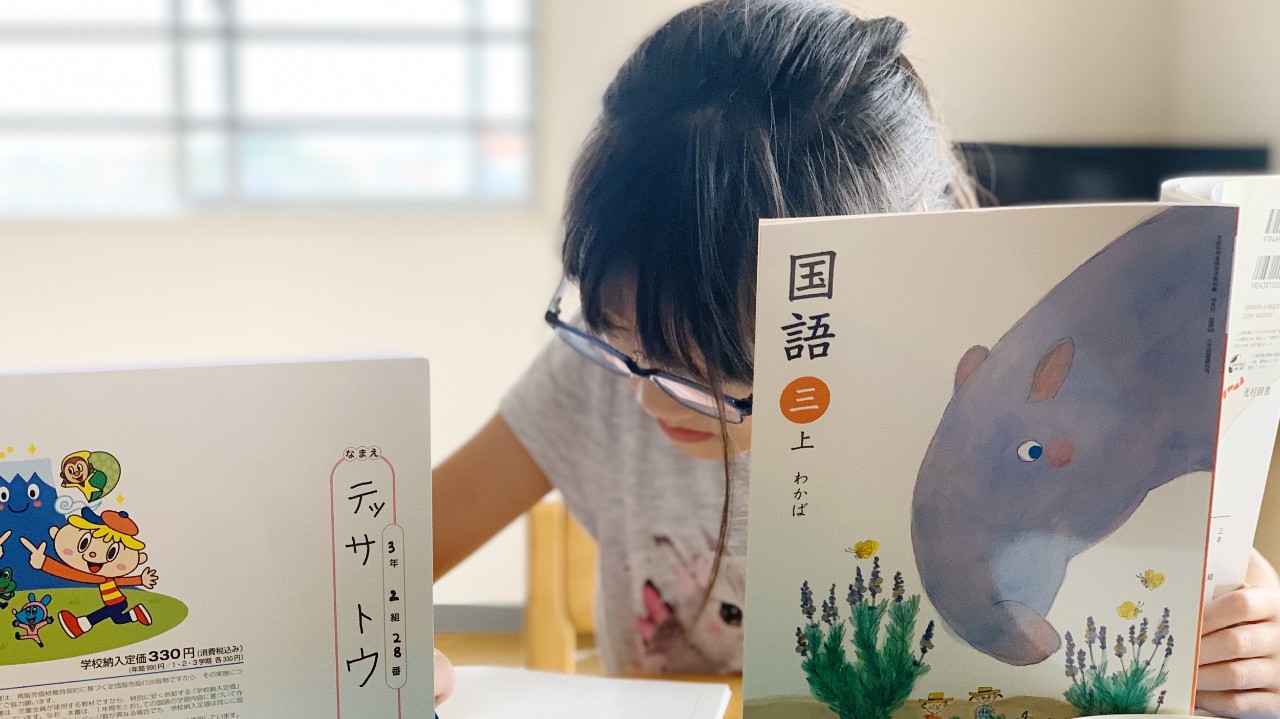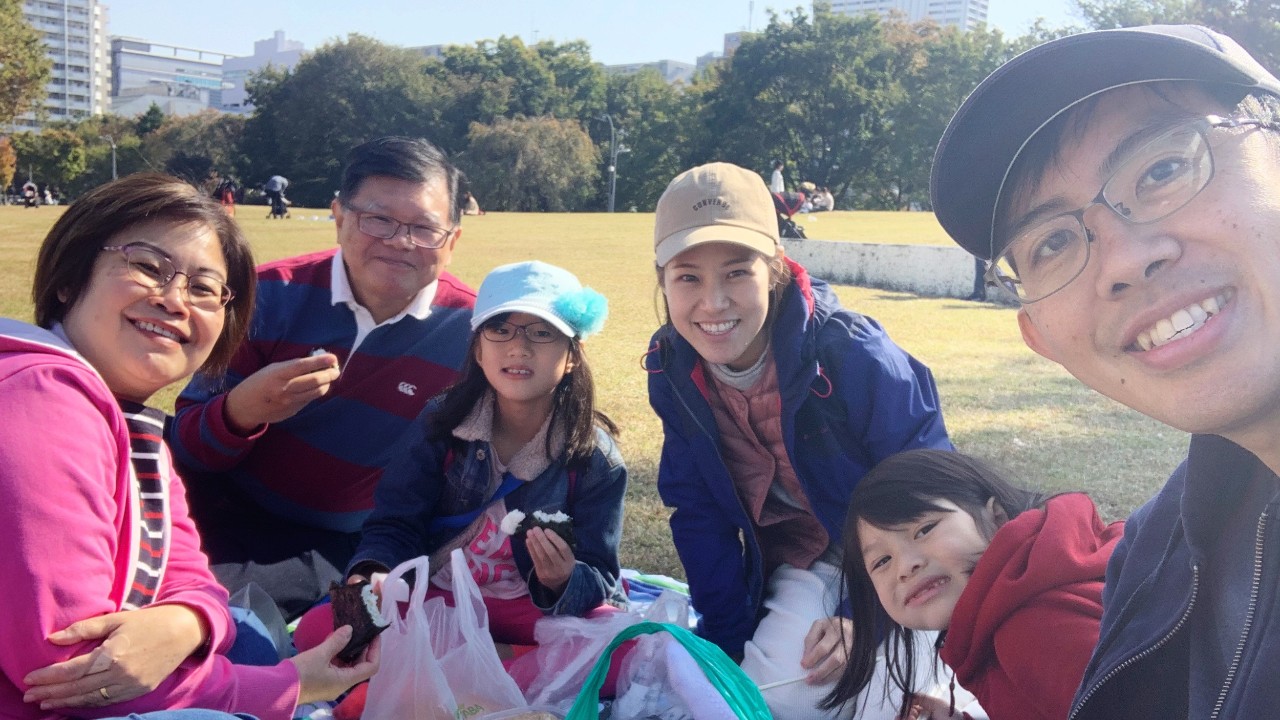
“I like my friends, and toshokan (図書館, library) because I love to borrow books and read! I also like sansu (算数, Mathematics), and taiiku (体育, P.E.) and playing outside, like the monkey bar and the jungle gym to jump off!”
Meet Reina, a bubbly newly minted seven-year-old missionary kid to Japan.
Not to be outdone, her sister, Tessa, 9, jumped in, “I like nakayasumi (中休み, recess)! In school, I like to do ongaku (音楽, music) and play the kenban-harmonica (鍵盤ハーモニカ, melodica). But I don’t like playing dodgeball.”
Now calling Tokyo home, Cru Singapore missionaries, Victor and Candy Toh, made the courageous decision to pack up their lives and move to Japan in August 2019. Having spent considerable time on both short and long-term mission missionary stints to Japan before 2008, this is not unfamiliar ground to them.

Reina making friends in school
Ten years on, they are back. This time with two girls in tow.
Why return to a proverbial missionary graveyard?
“In 2008 we came back to Singapore still expecting to return to Japan, but we weren’t sure in what capacity. I wanted to find a good fit where we could use our experiences and find where we could best contribute,” Victor explained.
Candy added, “We knew that if we were to move back to Japan and decide to stay, it would be for the long run. As I imagined us living here while still in Singapore,
“I asked myself, ‘There are needs everywhere, but with the number of Christians here compared to Japan, should we really be here, or could we be of better use there, where only 1% knows God personally?’”
“It started when Lee Gyu Sang, the current Campus Ministry Director for Tokyo of Japan Campus Crusade for Christ (JCCC) told me that my name came to mind as he was praying for someone to do Digital Strategy in Japan.
“I also had the chance to speak to Atsushi Ebuchi, National Director of JCCC, about this decision. As we prayed together, I could feel his burden for reaching the Japanese, which really moved me,” recounted Victor.
“While speaking with one of my church pastors from Redemption Hill Church who simply asked me to reflect on the journey that God has brought us through—the experience we have in Japan, the relational capital we had built there, and even a waiting role—I realised that these were not to be taken lightly. With a lot of fear and trembling, we decided to officially pursue this.”
Rough re-entry
Having been here for about five months, the family is still in the process of finding their rhythm of life in Japan. Candy said, “The adjustment here is tricky because it all comes at once—we’re adjusting to a new place, the kids are adjusting to school, there are so many big decisions and expenses to make, we are trying to get the house together. It is stressful.”
A main concern for the couple was the girls’ transition to life in Japan. “It was really hard at first as I sensed their emotions and anxiety, just seeing how they couldn’t understand anything.
“In their first month, I spent the whole day in school running between their two classes to translate for them.

Victor with the girls
“But God is really gracious and answered many of our prayers about their school environment and teachers. Knowing that Tessa is more sensitive, God gave her a very kind and gentle teacher who translates a lot for her, even on her worksheets so she can understand.
“They still miss Singapore, even though they really enjoy school and interacting with new friends. Tessa took it really hard when we moved and still wishes we didn’t have to; sometimes Reina will say I forgot how this friend looks like, or I when I see I think about this person,” Candy recalled.
“So we try to spend more time with the girls, find out how they are and pray together, getting them to process their day with God. We’re also mindful that we need to keep talking to each other. I’m reminding myself that the marriage and family needs to be first,” Victor said.
Silver linings
Having been on campuses since 1962, campus ministry remains JCCC’s flagship. This results in people being keen to connect with Victor to discuss how to better reach campus students in their community.
“The churches here are willing and open to work together and collaborate, and we likewise want to be a good partner in the body of Christ for Japan. My hope is that as our campus ministry gets more effective, we can help channel these students back to the churches.”
With 118.9 million internet users, 78 million social media users and 147% mobile subscription rate, Victor has his work cut out for him. (We Are Social 2019, Hootsuite)
“Digital Strategy (DS) is an important tool for us because we have another avenue to communicate with people. Although it is often thought of as business-centric, it is a neutral means that the church can use as a channel of connection, be it through social media, branding or marketing. By using it wisely and responsibly, I hope to be able to increase the effectiveness and capacity for JCCC through DS,” said Victor.

Tessa works hard at learning Japanese
Navigating the nuances of Japanese culture
Unsurprisingly, one of the hardest things for a foreigner is to be able to know and understand Japanese cultural norms to effectively build a relationship with a Japanese person. “There is a saying in Japanese: ba no kuuki wo yomu (場の空気を読む), literally translated as ‘reading the air’, where it encompasses reading situations, people and subtle social cues. It’s something we also have in our culture, but it seems even more important and highly valued here,” Victor pondered.
“Being brought up to prefer indirect communication, the younger generation faces the tension of wanting to be clear but feeling like they are being rude if they are too direct. This Japanese teacher was explaining a Japanese style of speech to me, where you just trail off only saying half of what you really want to, leaving the second part unsaid.
“For example, if person A doesn’t want to do something that person B has asked, person A will just reply halfway – enough for person B to understand, and that’s considered a polite way to speak.”
“Although from the older generation, this teacher commented that it’s not good communication and it’s important to learn to say everything. To be clear in what we want to communicate. He thinks that younger people now recognise this as a problem and are trying to change.”
However, Victor and Candy have found through their previous experience that foreigners are not held up to the same high standards and more readily forgiven for not understanding cultural rules. Nonetheless, they believe in doing their best to communicate well to the culture by learning the language, enrolling the girls in a local school, and reading up to better understand contextual and social cues.

Fellow Cru Singapore missionaries, Weng Kong and Jaine, who helped the Tohs settle in
Yet, they understand there is no value in trying to fit in completely. “In every culture there are good points and bad points, so there must be a place that we are able to go counter-culture. We want to be able to identify which part of the culture is good in order to be able to gain a hearing and not put up an unnecessary barrier from the beginning, but at the same time still be bold or scriptural enough to say ‘even though Japanese culture is like this, I’m going to follow what God says and be different’,” Victor resolved.
Church support makes a huge difference to parachurch missionaries
“In our journey, although not everything is answered according to the way or timing we want, I’m grateful that God has provided for us and is leading us to know Him more, to experience more and more joy.”
“It’s always helpful being reminded that it’s actually God doing His work, and it’s not us trying to do something on our own,” Victor chuckled.
Candy reflected, “I’ve been thinking about personal holiness and awaiting Christ’s return— and how I would live if I remembered this every moment. It can be difficult because sometimes it feels like we are on our own, but we are still praying into finding a support group in Japan.”
A big factor that helped smoothen the Tohs’ transition into Japan is their support network in church. Not only did many members give sacrificially, they’ve also had church members, cell group members, and friends come Japan to spend time with them.
“I’m encouraged by the general sense of people being interested in this mission field. It’s such a blessing that the church reminds us that they are praying for us regularly—it helps us remember that we are not doing this ministry in our own strength, so whatever results, anything that happens we’re being covered by prayer,” Victor concluded.
Keen to be involved in a short- or long-term mission trip? Contact us at missions@cru.org.sg to find out more. Find out how to give to the Tohs at cru.org.sg/give today!

Deborah is passionate about capturing different perspectives to create relevant and impactful content. She enjoys meaningful conversations and collecting experiences, but also loves time spent just with a good book and cup of coffee.
©1972-2025 Cru Singapore. All Rights Reserved.